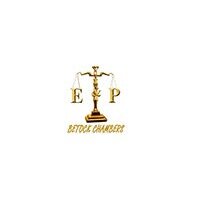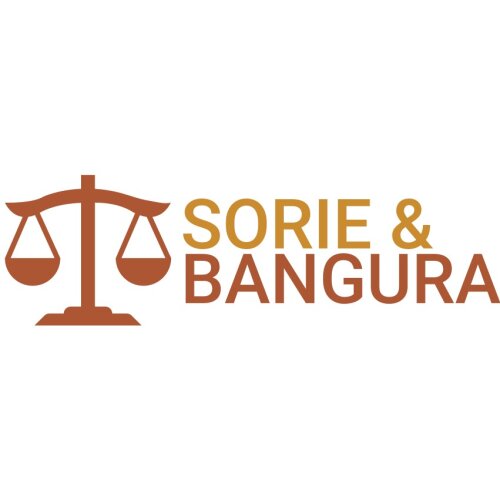Best Business Lawyers in Sierra Leone
Share your needs with us, get contacted by law firms.
Free. Takes 2 min.
Or refine your search by selecting a city:
List of the best lawyers in Sierra Leone
About Business Law in Sierra Leone
Sierra Leone has a growing economy with a focus on sectors such as mining, agriculture, and tourism. Business laws in Sierra Leone are primarily governed by the Companies Act, the Business Registration Act, and various other regulations. It is important for businesses to understand and comply with these laws to operate successfully in the country.
Why You May Need a Lawyer
You may need a lawyer for a variety of reasons in the field of Business in Sierra Leone, such as setting up a business, drafting contracts, resolving disputes, understanding taxation laws, and ensuring compliance with local regulations. A lawyer can provide valuable guidance and support to help you navigate the legal complexities of doing business in Sierra Leone.
Local Laws Overview
Key aspects of local laws that are particularly relevant to Business in Sierra Leone include company registration requirements, taxation laws, employment regulations, and contract laws. It is important for businesses to familiarize themselves with these laws to avoid legal issues and ensure smooth operations.
Frequently Asked Questions
1. How do I register a business in Sierra Leone?
To register a business in Sierra Leone, you need to submit the necessary documents to the Corporate Affairs Commission and pay the required fees. The process typically involves registering your business name, obtaining a business registration certificate, and fulfilling other regulatory requirements.
2. What are the taxation laws for businesses in Sierra Leone?
Businesses in Sierra Leone are subject to various taxes, including corporate income tax, value-added tax (VAT), and import duties. It is important to comply with tax laws and regulations to avoid penalties and ensure smooth operations.
3. How can I resolve a business dispute in Sierra Leone?
Business disputes in Sierra Leone can be resolved through negotiation, mediation, arbitration, or litigation. It is advisable to seek legal advice to determine the best course of action based on the nature of the dispute and the laws applicable in Sierra Leone.
4. What are the employment regulations in Sierra Leone?
Sierra Leone has specific laws governing labor relations, including minimum wage requirements, working hours, and employee rights. Employers are required to comply with these regulations to ensure a fair and safe working environment for their employees.
5. How can I protect my intellectual property in Sierra Leone?
To protect your intellectual property in Sierra Leone, you can register trademarks, patents, and copyrights with the Intellectual Property Office. It is important to safeguard your intellectual property rights to prevent others from using or copying your creations.
6. What are the requirements for importing and exporting goods in Sierra Leone?
Businesses importing and exporting goods in Sierra Leone are required to comply with customs regulations, obtain the necessary permits and licenses, and pay applicable duties and taxes. It is important to understand the import and export procedures to avoid delays and ensure compliance with the law.
7. What are the regulations for starting a mining or agricultural business in Sierra Leone?
Mining and agricultural businesses in Sierra Leone are subject to specific regulations and licensing requirements. It is important to obtain the necessary permits, conduct environmental impact assessments, and comply with industry-specific regulations to operate legally in the country.
8. How can I draft a legally binding contract in Sierra Leone?
To draft a legally binding contract in Sierra Leone, you should clearly outline the terms and conditions of the agreement, including the parties involved, the scope of work, payment terms, and dispute resolution mechanisms. It is advisable to seek legal advice to ensure that your contract is enforceable under Sierra Leonean law.
9. What are the regulations for foreign investment in Sierra Leone?
Sierra Leone welcomes foreign investment and has established various incentives to attract foreign investors. However, foreign investors are required to comply with local regulations, including obtaining investment permits and complying with industry-specific laws. It is advisable to seek legal advice before making any investments in Sierra Leone.
10. How can I ensure compliance with anti-corruption laws in Sierra Leone?
Sierra Leone has anti-corruption laws in place to prevent bribery, fraud, and other corrupt practices. Businesses are required to comply with these laws and implement internal controls to prevent corruption within their organizations. It is important to take proactive steps to ensure compliance and uphold ethical business practices.
Additional Resources
For further information on Business laws in Sierra Leone, you can refer to the Corporate Affairs Commission, the Ministry of Trade and Industry, and the Sierra Leone Chamber of Commerce. These organizations can provide valuable resources and guidance to help you navigate the legal landscape of doing business in Sierra Leone.
Next Steps
If you require legal assistance in the field of Business in Sierra Leone, it is advisable to consult with a qualified and experienced lawyer who specializes in business law. A lawyer can provide personalized advice and support to help you address your specific legal needs and navigate the complexities of doing business in Sierra Leone.
Lawzana helps you find the best lawyers and law firms in Sierra Leone through a curated and pre-screened list of qualified legal professionals. Our platform offers rankings and detailed profiles of attorneys and law firms, allowing you to compare based on practice areas, including Business, experience, and client feedback.
Each profile includes a description of the firm's areas of practice, client reviews, team members and partners, year of establishment, spoken languages, office locations, contact information, social media presence, and any published articles or resources. Most firms on our platform speak English and are experienced in both local and international legal matters.
Get a quote from top-rated law firms in Sierra Leone — quickly, securely, and without unnecessary hassle.
Disclaimer:
The information provided on this page is for general informational purposes only and does not constitute legal advice. While we strive to ensure the accuracy and relevance of the content, legal information may change over time, and interpretations of the law can vary. You should always consult with a qualified legal professional for advice specific to your situation.
We disclaim all liability for actions taken or not taken based on the content of this page. If you believe any information is incorrect or outdated, please contact us, and we will review and update it where appropriate.
Browse business law firms by service in Sierra Leone
Sierra Leone Attorneys in related practice areas.
Browse business law firms by city in Sierra Leone
Refine your search by selecting a city.












